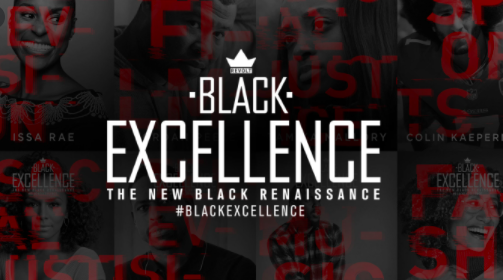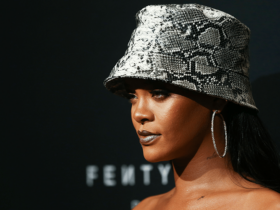The infrastructure of the United States is, to no surprise, struggling to support societal changes happening within its walls. Our country was built on a foundation of systemic oppression. Minorities were never meant to thrive in this country. If it wasn’t for the constitutional requirement of basic human rights, no one would have a leg to stand on in the “land of opportunity” except for straight white males. America, the global poster child for freedom and equality, wears a stain it can’t wipe off, and it’s one of blatant hypocrisy.
If you look close enough at sports and entertainment, the business of pop culture is a microcosm of the American experience for minorities. Male and female people of color produce the goods and trends that directly impact society, but miss out on the bulk of revenue and resources stemming from that societal impact. The superstars of our time serve as metaphorical statesmen. We respect their skills and experience as cultural leaders, and we follow their example. But lately, we’ve seen them all take a stand against the status quo in terms of demanding a fair piece of the American pie.
LeBron James maintains power over his career by demanding contracts that suit his best interest. Upon his departure from Cleveland, bars and restaurants saw an 80% drop in revenue. Cavaliers ticket prices also fell by 29-percent. Upon his return, there was a nearly 25% increase in employment for businesses near the Quicken Loans Arena. And bar owners reported 30-200-percent boosts in revenue.
James understands his value to the industry of professional basketball and the economics of the cities he plays for. The fact is, with his presence, everyone else gets fatter pockets. Why shouldn’t he and every other superstar set the price and the terms of their economic contribution?
Colin Kaepernick took a stance against racism and oppression, paying for it with his career. Has anyone stopped to think about why owners are really refusing to sign him? By week four of the 2016-2017 NFL season, games saw a 13% decline in ratings from the previous year. The national coverage from CBS fell by 2% while Fox (43% of the market) fell 14% from the previous year. According to Nielsen, these were the results of 44% of Americans who would opt to boycott NFL games if players continued to kneel for the national anthem.
The NFL brings in $4.6 billion in television fees, which is equally shared amongst its 32 teams. Television revenue is a huge reason why the average NFL team is worth $2.34 billion, a very lucrative asset for a team owner. Could there be a deeper reasoning behind the blackballing of Colin Kaepernick? Is it because he’s “disrespecting America” or is it because his influence could affect pockets? After all, the NFL is 70% comprised of black athletes. Imagine the effect on ratings if they all followed Kaepernick’s example.
A powerful shift is happening on the silver and small screens, as well. Hollywood can no longer deny black talent or the black audience. Starting in 2015, Black Hollywood stole the show with movies and shows like Straight Outta Compton, Empire, 12 Years a Slave, Moonlight, Scandal, How to Get Away with Murder, Creed, Power, Selma, Insecure, and plenty more. When the Oscars wouldn’t nominate award winners fairly, the #OscarsSoWhite hashtag took over the internet. It forced the gatekeepers to acknowledge top tier black actors and actresses. That resulted in the most wins ever for black actors/actresses at the 2017 Oscars. All of that, while Shonda Rhimes is literally flipping the television industry on its head by creating and/or executive-producing multiple hit TV shows at once for ABC. As ABC neglected to re-negotiate their deal with Netflix, Shonda took a contract to exclusively produce original series for the streaming platform. She has placed herself at the helm of leading original program development for an industry leader, going head-to-head with Disney.
Hip-hop and R&B now makes up 25.1% of the music consumed in the United States; that’s a quarter of the revenue for an industry that generated $15.5 billion in 2016. The mega-stars of the genre are religiously tapped to be brand ambassadors for the likes of Calvin Klein, Guess, Puma, Nautica, Dior Homme, Alexander Wang, Robert Cavalli, Balmain, and more as fashion continues to command a $385.7 billion domestic market value. Our entertainers are inspiring the product and then influencing the sales of the brands, even making the music these brands use in their promotional efforts.
These moments are a reflection of advice we’ve heard time and time again: to recognize our power, own our influence, and build generations of wealth. Jay-Z’s latest album and interview on Rap Radar has the culture talking equity and legacy like never before. Let us not forget that he isn’t the first to attempt instilling these virtues in young Black America. Dame Dash and Kanye West have been trying to preach that we are the culture, and that we should be the billionaires in control of the industries thriving off of our creations. Perhaps it was their delivery that threw us off, but their words are almost prophetic in relation to the culture’s willingness to listen three years after the fact.
Black culture’s ownership of its leverage and economic impact in sports, film/television, fashion, and music is being unapologetically claimed. Pop culture is transmitted through mass media, and that mass media shapes the American identity. Society has been forced to digest black defiance and excellence at the highest levels. The discontentment is a microcosm of the feeling that our country’s majority has toward the impeding exchange of institutional power as generations pass. The bigots and racists of the U.S. aren’t always bold with their hatred; most of them fly under the radar, unless they feel comfortable or empowered enough the show their true colors.
The election of Donald Trump as President was no coincidence. It gave a voice to America’s frustrated racist population. Neo-Nazis even rebranded, trading in bald heads and swastikas for comb-overs and hipster clothing. A more “marketable” appearance was required for them to bleed back into mainstream media as the “alt-right.” These occurrences are forms of America reacting to a truth it never wanted to face. By 2060, the Black population will increase from 45.7 million to 74.5 million, making nearly 20-percent of the U.S. population. From 2000 to 2014, the rate of African-American population growth was 35% faster than the U.S. population as a whole.
Black America is growing in existence and intelligence. Eighty-nine percent of African Americans ages 25–34 completed high school, compared to 77% of African Americans ages 55 and older. Twenty-one percent of African Americans ages 25–34 have an associate’s college degree or higher, versus 17% of those who are 55 and older. Along with that intelligence is the awareness that we have been directly influencing the industries fueling the economy. The thought of being outnumbered by a community sick of being systemically oppressed, with a growing understanding of its economic power, is scaring the hell out of the majority.
The 1920s spawned a literary, artistic, and intellectual movement that formed a new cultural identity for the black community. The Harlem Renaissance became the embodiment of a generation breaking free from the conservative ideals of the black men and women who raised them. For the first time, we became boldly and unapologetically black, which spawned the birth of “the culture” as we know it. People used creativity to bring attention to the issues of the African American community. Black excellence was procured through visual arts, music, and literature that pushed the envelope, so much so that mainstream America couldn’t ignore the movement. Publishers were consumed by a fascination with Harlem, and Black writers became a hot commodity as those same publishers sought them out for first-hand accounts of life in the hub of creativity.
At that moment. we began to have a voice and an aesthetic that directly impacted mainstream America. Almost 100 years later, welcome to the internet-induced New Black Renaissance. This time, we’re setting the price.
*Original article by Dev T. Smith for Revolt TV (2017)






Recent Comments